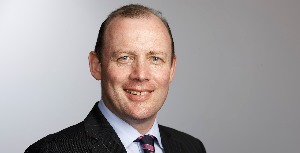
For the 2018 financial year, it turned in net operating income of $196.8 million, and a net profit after tax of $67.5m.
It also reported growth in net finance receivable assets of 12% to a total of $4 billion and held its net interest margin firm at 4.42%.
Over the past four years it has almost doubled its net profit.
Chief executive Jeff Greenslade said its reverse mortgage book was the business sector with the most growth in the year. It grew strongly in New Zealand, but more notably in Australia.
The Australian reverse mortgage business grew by $159m and the New Zealand by $50m.
“We are focused on maximising the leading position we have in both of markets. In Australia, our market share continues to increase and this is not expected to slow down, with the product becoming increasingly in demand as a result of the demographics.
“In Australia, 20,000 people are turning 65 every month. In New Zealand, the population aged 65 and above is expected to grow by 230,000 between 2021 and 2031.”
He said Heartland wanted to focus on markets where it had one of the best products – such as its motor vehicle finance, which was the second-biggest growth area for the business in 2018 at $131m– or only products, such as its reverse mortgages or the Open for Business platform for small business lending.
Open for Business recorded 98% growth in 2018, with a loan book of about $100m.
“Legacy activities which are a drag on resources and returns must be exited,” Greenslade said.
“As I mentioned earlier, we have already identified the larger end of the business and rural books as areas we wish to exit to release capital and resources and to de-risk the book.”
Heartland is planning a corporate restructure, and a listing on the Australian markets.
Heartland Bank will become a wholly-owned subsidiary of a new listed parent company, Heartland Group Holdings.
Heartland said this would remove constraints on its growth and funding capabilities, which currently arise from Reserve Bank regulation.
For the Australian reverse mortgage business, the restructure will alleviate funding constraints and allow it to continue to grow using its preferred method of funding.
There would be no change to the core business and Heartland Bank would continue to be regulated by the Reserve Bank.
Greenslade said Heartland was open to acquisitions in both New Zealand and Australia.
Shareholders will receive a fully imputed final dividend of 5.5c per share.




Comments
No comments yet.
Sign In to add your comment